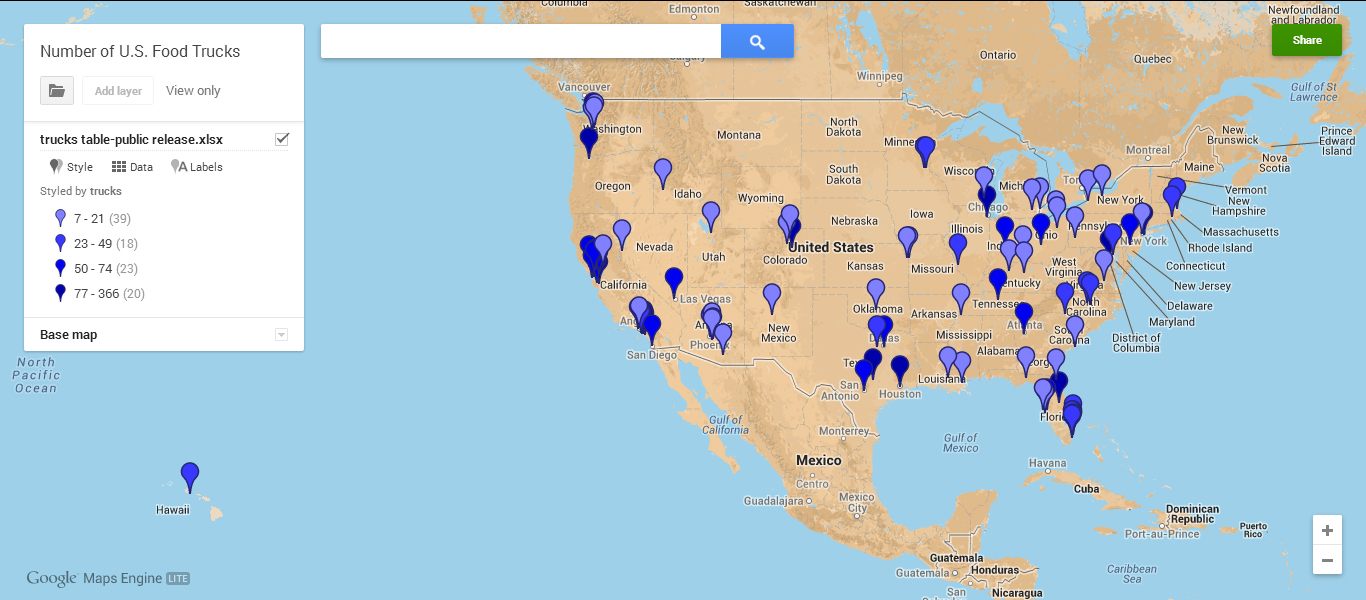ANN ARBOR, MI – They’re not your father’s lowbrow roach coaches serving up greasy burgers and bad dogs. Today’s gourmet food trucks peddle sushi, hybrid Korean tacos and other dishes that combine different types of cuisine to create a highbrow dining experience for foodies in search of eclectic, local eats.
That’s the take of researchers from the University of Michigan and Northwestern University who harvested Twitter data to conduct a de facto census of up-scale U.S. food trucks, invented in Los Angeles in 2008.
“Virtually all these trucks are online and use Twitter to connect with customers, especially if they change locations,” said Todd Schifeling, a Ph.D. candidate in sociology at U-M. “So we were able to avoid the sampling errors that often happen as a result of using social media as data.”
Schifeling and Northwestern’s Daphne Demetry found that there are now more than 4,000 food trucks in U.S. cities with more than 100,000 people.
Larger and more spread out cities with higher rental costs had more trucks, they found, supporting the idea that chefs are turning to trucks as a cheaper alternative to brick and mortar restaurants.
“We were surprised to find that weather isn’t really a factor in the concentration of food trucks,” said Schifeling. “Extreme temperatures have no effect and precipitation is actually positively associated with the new food trucks, although this effect drops out of significance if Portland, Oregon is removed.”
But rather than concluding that rain breeds food trucks, Schifeling and Demetry believe that social factors can overcome adverse meteorological conditions.
Among these factors: cities with greater percentages of college graduates and creative workers, and with more diverse populations. Cities with more craft breweries and farmer’s markets and with fewer fast food and chain restaurants also tend to have more gourmet food trucks.
According to Schifeling and Demetry, the growth of food trucks is a prime example of what they call “the new authenticity economy”—a trend toward favoring unique, eclectic, local and artisanal products.
Schifeling’s interest in food trucks started when he realized how often he was eating at them. “My favorite truck serves a combination of a grilled cheese sandwich that’s filled with short ribs,” he said. “It’s just one example of the kind of creative recombining of different cuisines that goes on with a lot of these trucks.”
Schifely and Demetry presented their findings August 16 at the annual meeting of the American Sociological Association.




